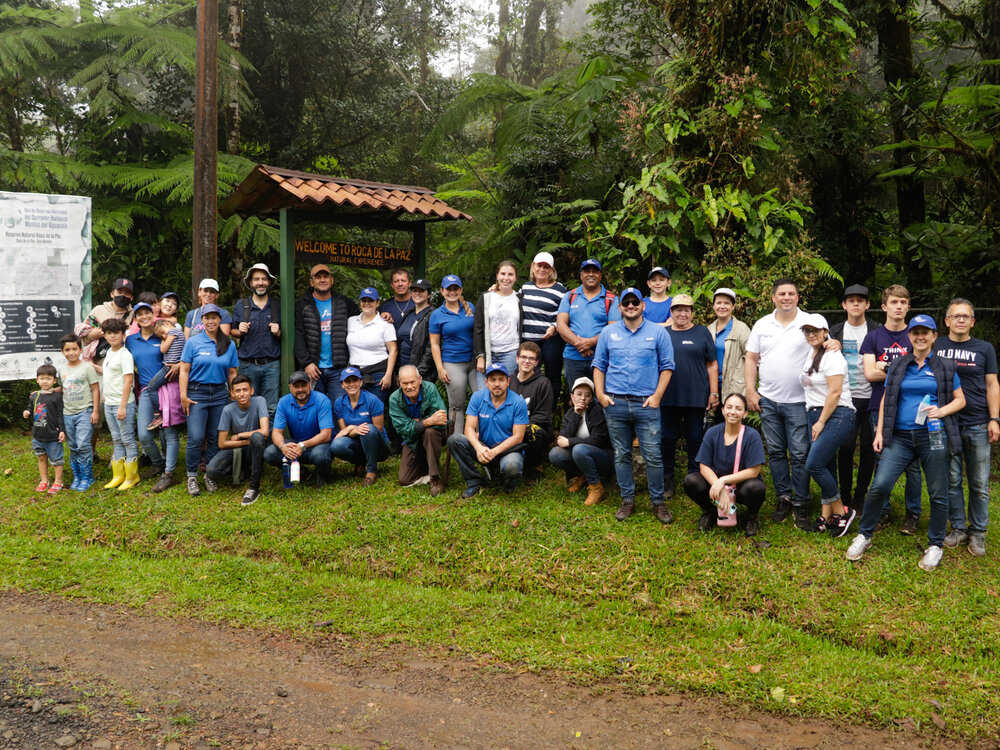CABEI volunteers in Costa Rica reforest Roca de la Paz Reserve with 200 trees

The space is part of an area of influence of the Monte del Aguacate Biological Corridor, which has natural and intervened forest cover.
San José, August 4th, 2022.- A total of 40 Costa Rican volunteers, including officials from the Central American Bank for Economic Integration (CABEI) and their families, planted 200 trees in the Roca de la Paz Reserve, located in San Ramón de Alajuela and part of the Montes del Aguacate Biological Corridor.
The reforestation activity was carried out within the framework of the multilateral's Corporate Social and Environmental System (SASC), in which adults, adolescents, and children participated by planting species such as aguacatillos, jorco, and oak trees in the reserve, which has an extraordinary biodiversity in bird life, as it is home to species such as the bellbird, rualdos, quetzals, trogons, and more than 300 species.
"Environmental sustainability is a transversal axis of CABEI's Institutional Strategy; therefore, for our organization it is crucial to promote and reinforce a culture of responsibility towards the environment from within, with our team of collaborators and their families, who also enjoy an agreeable group recreational activity," said CABEI's Executive President, Dr. Dante Mossi.
The Montes del Aguacate Biological Corridor is considered a model of joint management between the State and civil society to promote actions that contribute to the conservation and protection of the biodiversity of protected wild areas and areas of privately owned forest cover, which begins in the Alberto Manuel Brenes Biological Reserve and ends in the Carara National Park.
This initiative is part of CABEI's Environmental and Social Policy, which seeks to strengthen its commitment and that of its collaborators to the environment and the communities in which it operates through the Corporate Environmental and Social Responsibility System (SASC).



